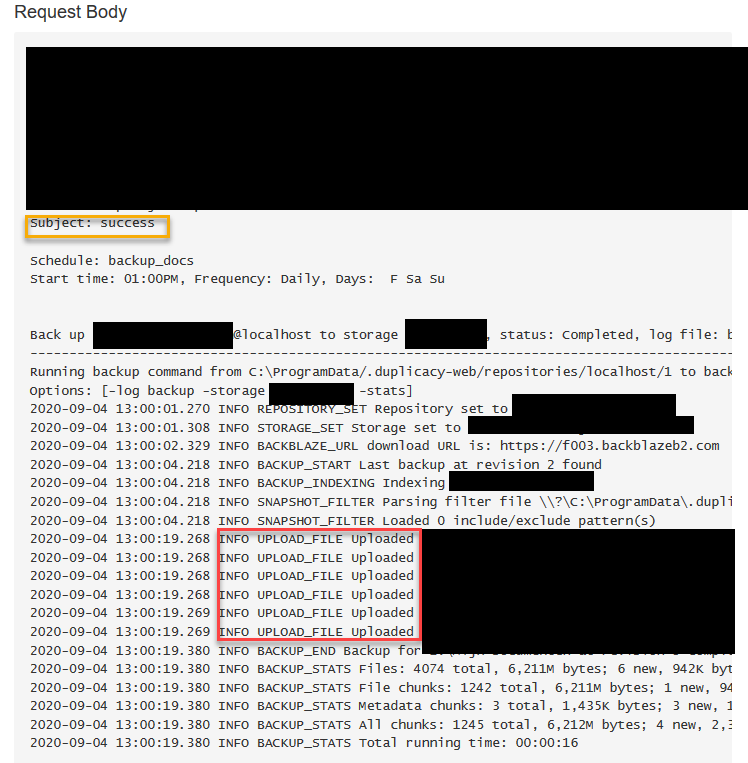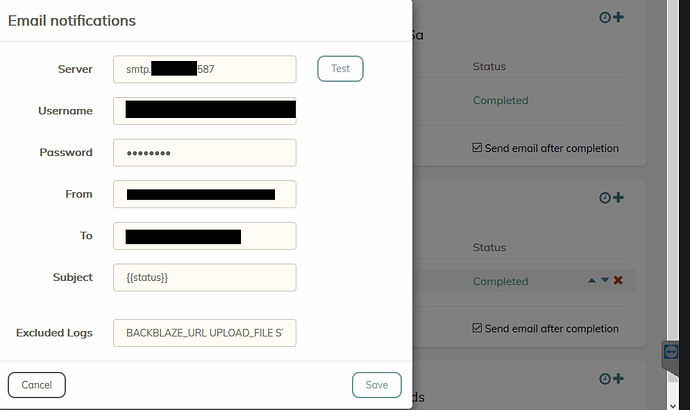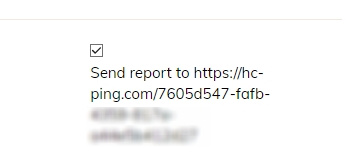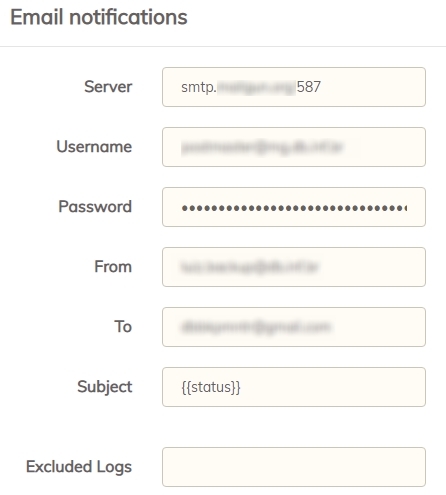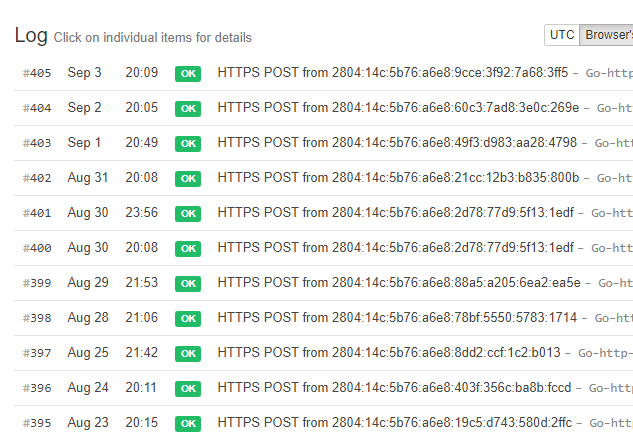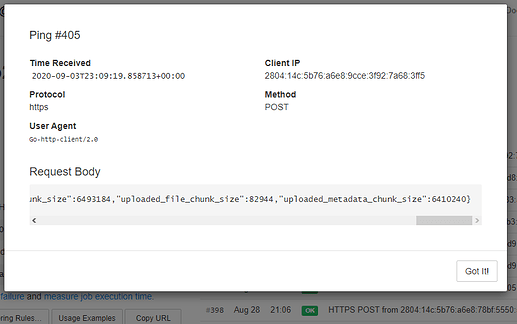I didn’t understand what you mean by “files names”.
I use Healthchecks and the “ping log” has this format:
{"computer":"NOTE4","directory":"D:/Personal_Files","end_time":1598828548,"new_chunk_size":0,"new_chunks":0,"new_file_chunk_size":0,"new_file_chunks":0,"new_file_size":0,"new_files":0,"new_metadata_chunk_size":0,"new_metadata_chunks":0,"result":"Success","start_time":1598828519,"storage":"personal--b2","storage_url":"b2://personal","total_chunk_size":3263168512,"total_chunks":2801,"total_file_chunk_size":3257925632,"total_file_chunks":2795,"total_file_size":3257925632,"total_files":14054,"total_metadata_chunk_size":4941824,"total_metadata_chunks":6,"uploaded_chunk_size":0,"uploaded_file_chunk_size":0,"uploaded_metadata_chunk_size":0}
The above information is the json generated by  .
.
Only the name of the computer and the repository are given (ok, it’s not ideal either, but it doesn’t have any sensitive information).
Other information that appears is the name of the storage and the bucket in B2. Again, not ideal, but if your bucket security options are correct, it’s not too much of a problem.
Of course, these are all concerns in case of scrutiny by Healthchecks or data leak.
As for sending the complete log by email after executing a schedule, it goes directly to a private email used only for log collection, it is not sent to Healthchecks.
Am I missing something?

 .
.